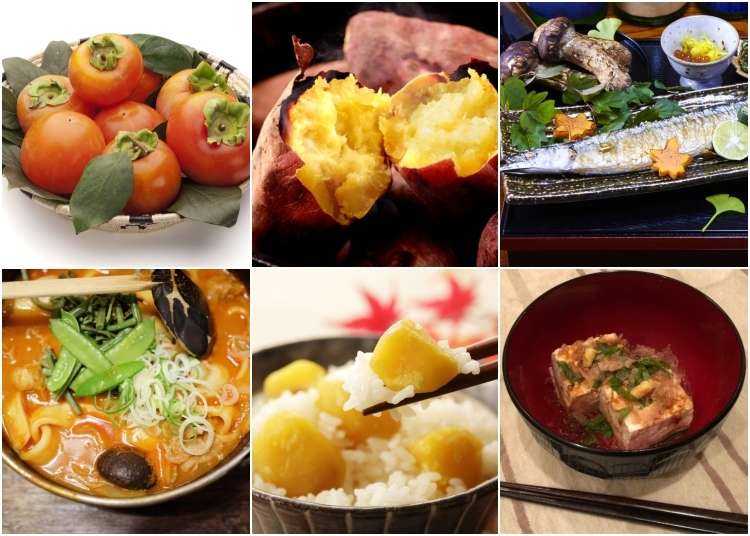
Japan Beyond the Guidebook: 6 Expats Share Their Top Autumn Food Choices!
- Written by: Nina Cataldo
As the momiji and ginkgo trees’ leaves begin to change color, Japan’s seasonal food scene seems to bloom. Although Japanese cuisine famously transforms with each season, Autumn may be the star of them all. Intricately weaving in the rich hues of orange, yellow, and red into each dish, Autumnal Japanese dishes both subtly and loudly represent the changes in the season.
Take these expats’ advice in trying out Autumn’s favorite dishes that both warm our bodies and fill our tummies!
Sanma (Pacific saury) - humble cheap fatty blue fish, harbinger of Autumn

Erez Ashkenazi
Automotive Engineer / 6 years in Japan
The Sanma, humble cheap fatty blue fish, harbinger of Autumn.
I first encountered this fish in a hole-in-the-wall sushi-ya in Yamaguchi prefecture. With no Japanese skills, I pointed my way through the fish in the refrigerated counter. Arriving at the long silvery slice, Taishou [the shop keeper], with the assistance of much hand signing may have explained that it was cheap, strong flavored, and the possibility that I wouldn't like it.
But I loved it! And having moved to Meguro in Tokyo, I discovered I wasn't the only one. There's an old tale of a Shogun eating Sanma at Meguro who's tweet equivalent may have encouraged a whole Sanma festival at a place pretty far from the sea.
My favorite way of eating it is as unctuous sashimi, but salt grilled is the main attraction in Meguro. Just beware the bitter belly - it can come as a bit of a surprise.
*Editor's note: Meguro's Sanma Matsuri is held annually on September 9. Around 20,000 people visit this famous and popular event, in which 7,000 fresh saury are offered free of charge on a first-come, first-serve basis.
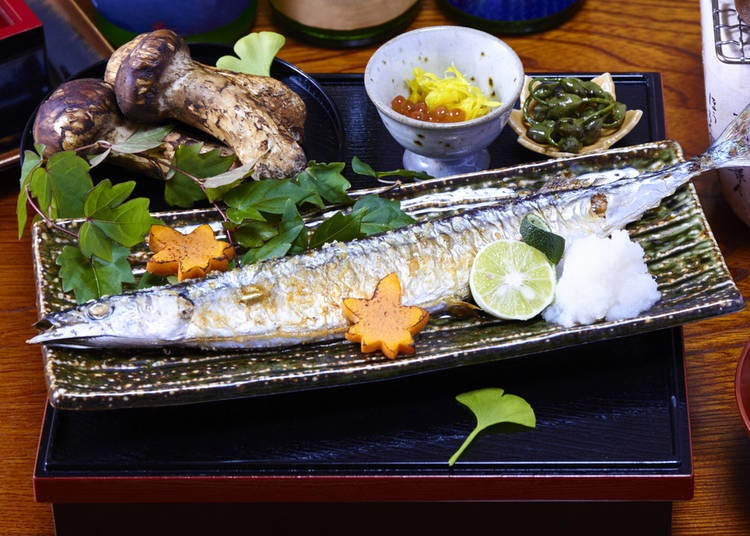
Satsumaimo sweet potato!

Juan Gabriel Perez
Social Media Director at Japan Crate / 1 year in Japan
One of the best things about living in Japan is that with each season comes an array of different seasonal products and flavors. I would be lying if I didn’t express how excited I get every time I see a new Black Thunder packaging or an interesting “seasonal” flavor KitKat...and I don’t even like chocolate that much. This excitement is at its peak during the Fall. While in Japan I miss the American traditions of Pumpkin Patches with spiced cider, pumpkin pie, and sweet potatoes with marshmallows...but it’s all worth it for the Japanese Sweet Potato, satsumaimo (さつまいも).
Satsumaimo is a little different than the typical western potato, the key differentiator it being purple, but boy is it good and it’s literally in every Japanese snack during the Fall. From Sweet Potato KitKat to chips and ice cream, you name it. The absolute best, though, is it freshly baked from the conbini. I cannot describe the joy and warmth that a fresh baked satsumaimo potato from a conbini for only a couple yen brings me each year.
Pair the delightful flavor of satsumaimo with the seasonal nabe (Japanese hot pot) and it’s heaven...pretty much makes up for the lack of western Fall traditions. From what I’ve heard, nabe tends to vary by regions and hometown, so each Fall I look forward to trying as many different variations as I can, creating my own, new Fall traditions.
Call it a “Fall Familiarity” but the flavors along with the holidays such as Halloween makes Japan feel more like home.
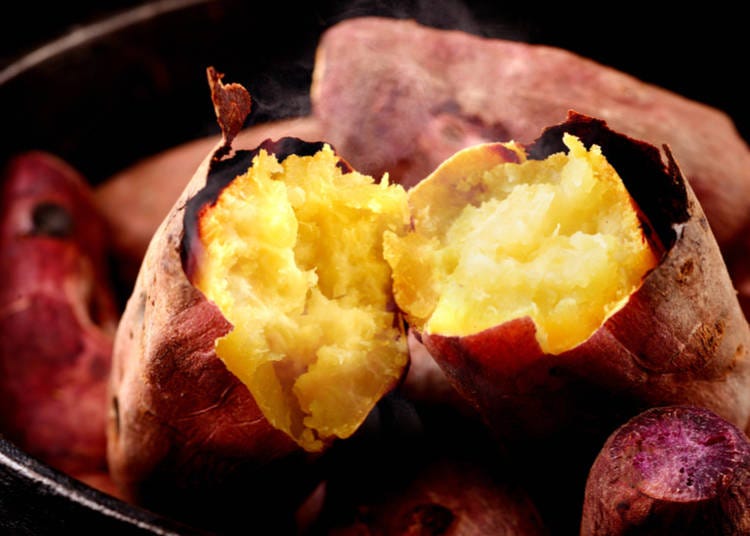
Autumn medley: from kabocha pumpkin to roasted Japanese chestnuts!

Romain Cligniez
CEO of WineKiosk, Wine Specialist / 7 years in Japan
What to say about Japan surrounded by colored leaves...
I will start with the star of Halloween, the kabocha, Japanese pumpkin - queen of velouté (white sauce) or tempura. Then you can continue with some sticky potato sato-imo, just simply boiled on skin and just a touch of wasabi or salt skinned hot. Then on to matsutake, Japanese truffle mushroom, steamed with rice, in a soup, or sautéed. And then the bouquet finale: kuri, Japanese chestnuts. I like it charcoal-roasted or old French style with it whole pan-fried. This is a little taste of what is Japanese aki (Autumn)!
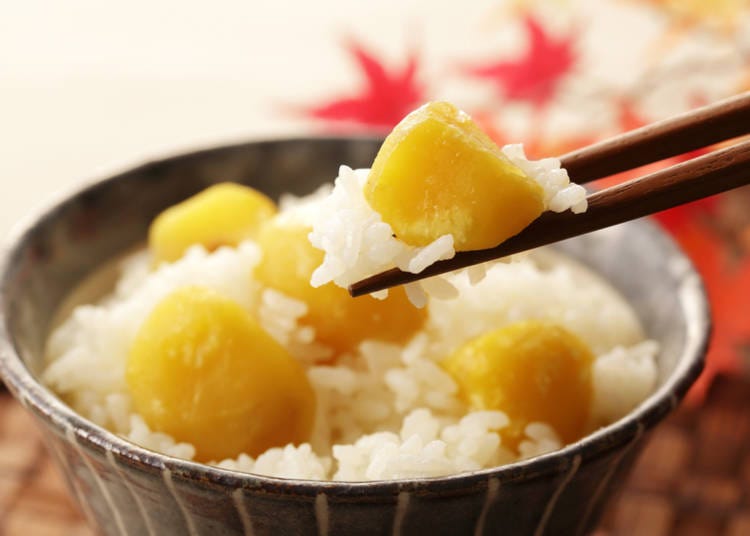
Fall is ripe for persimmons!

Selena Hoy
Social Worker and Writer / 13 years in Japan
Autumn is harvest season, and there are so many amazing vegetables available once Fall rolls around. We start getting a chill in the air, which means I'm finally ready to cook (and eat!) again after the sweltering summer which kills my appetite and has me eating watermelon for dinner several nights a week.
I love heading into the mountains in this season, going on a hike and picking up some of the produce available once the trees start to blaze. You can buy (or glean!) sacks of chestnuts (kuri), freed from their spiky cases, and then throw them in with the rice for steamed kuri-gohan, a sweet, nutty upgrade over regular white rice.
My friend in Fukushima always sends me a case of persimmons (kaki) this season, and I like making salads and baked goods with those. Persimmon spice bread is amazing! I like to bake it with a bit of nutmeg and vanilla. The flavor is sweet and smooth when baked, but a bit brighter than the pumpkin/squash treats that get all the attention around this time of year.
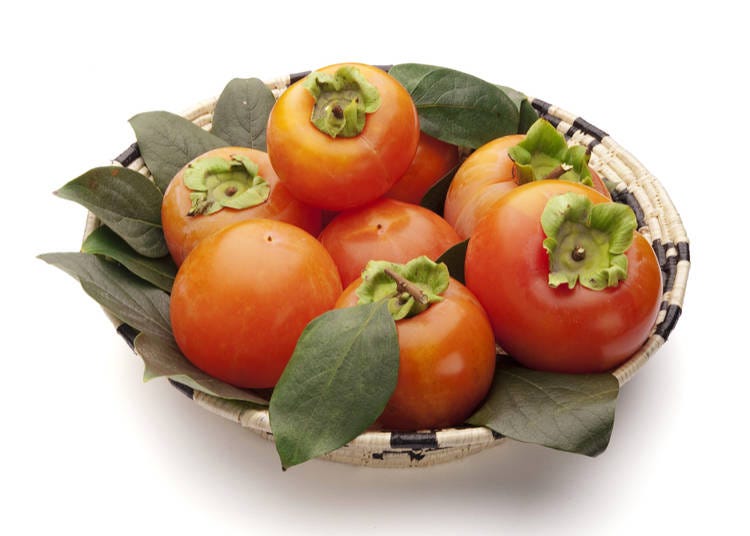
Hoto - Hearty Noodle Nabe!

Jeremy Laughlin
Business Development Manager, Santa Fe Relocation / 10 years
I would describe myself as a noodle man, rather than a rice man. My Italian blood might have something to do with it. When the weather gets cooler in Japan, I recently find myself craving Hoto Nabe.
In Japanese cuisine, there are three popular noodle styles - Soba (Buckwheat), udon (wheat flour), and ramen (Chinese-style wheat noodles). I am a bigger fan of soba, which is considered healthier than the others. However, when Autumn rolls around I get a craving for Hoto nabe, which contains flat udon noodles and vegetables in miso soup. Hoto is the hallmark cuisine of Yamanashi Prefecture. It is commonly believed to have been eaten by Takeda Shingen, regional warlord during the warring states period. Locals do not consider it to be an udon dish because the dough is prepared in the style of dumplings.
One of the dish’s main ingredients is Japanese pumpkin (kabocha) which gives it an orange tint and it possesses a quality that makes it appetizing during brisk weather. Other ingredients may include: onions, potatoes, carrots, Chinese cabbage and various types of mushrooms including shiitake. Pork and chicken can be included by preference. During my first trip to Yamanashi Prefecture, my hoto contained pork and it was delicious.
Pairing the dish with local sake (nihonshu) enhanced the experience significantly. Autumn is a great time to visit Yamanashi (the home of Mt. Fuji) where the fall foliage can be breathtaking.
The dish is probably best when prepared by locals, but if traveling is an inconvenience for you, there are many Yamanashi themed restaurants in the Tokyo region as well as oodles of recipes that can be found online.
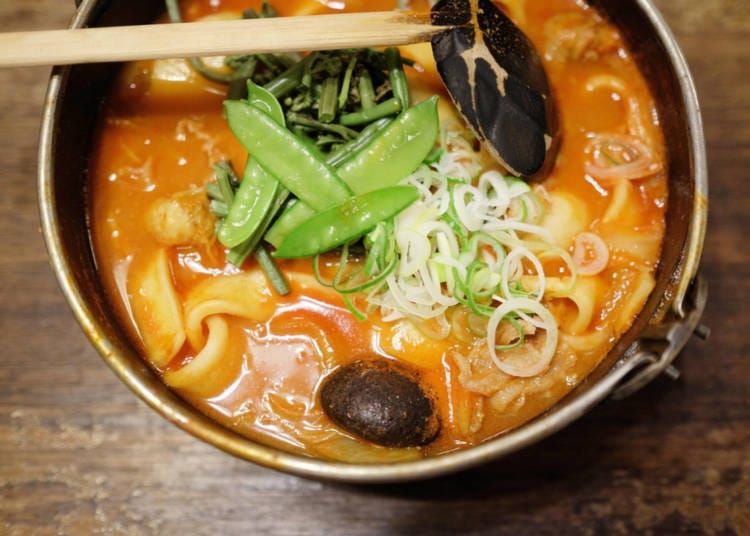
Warm up to tofu!

Jon Walsh
Director of Business Grow, Editor, Writer and Urban Farming Consultant and Instructor / 16 years in Japan
For people in autumn who want to reduce their meat intake while still getting a decent-sized hit of protein and flavor, here’s a tofu recipe that’s easy to make and seriously tasty.
This dish doesn’t just look great on a plate, it also contains ginger, which can help fight the flu and colds (just right for the coming winter), support digestion, and reduce nausea, pain and inflammation. There’s also negi (Japanese long onion), another popular cold remedy.
The smooth texture of tofu comes paired with just the right-sized jolt of gingery spice to create a memorable taste sensation that will have you coming back for more.
Ingredients:
A block of momen tofu
Long, green onion (naganegi), finely chopped
Ginger (shoga) - either paste or grated
Shiso leaf
Dried bonito flakes (katsuobushi)
Shoyu or tsuyu or ponzu dressing.
Steps:
1 - Take tofu out of packet and drain water
2 - Place tofu on a sheet of kitchen paper and cover with another sheet of kitchen paper. Gently push down on top sheet to squeeze out water from the tofu
3 - Place tofu on a dish or plate
4 - Cut up shiso leaves into small pieces and place on tofu
5 - Sprinkle naganegi and katsuobushi
6 - Put a couple of small dollops of ginger paste.
Serve and enjoy.
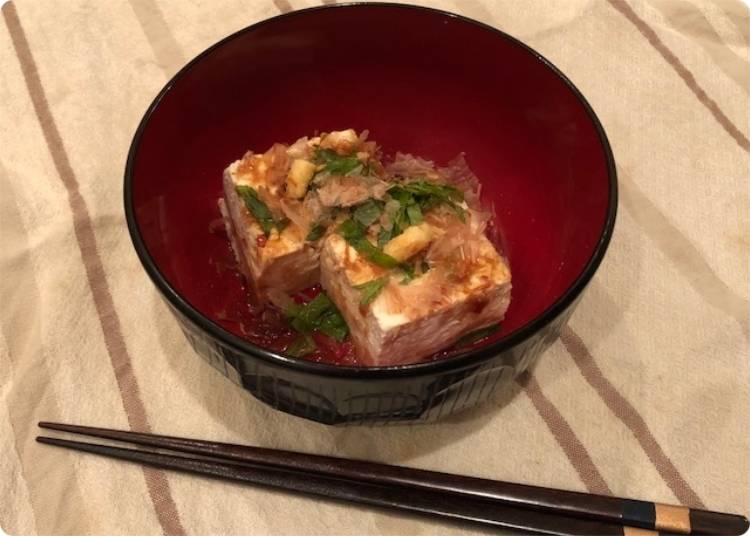
Nina is a globe trotter and storyteller, constantly seeking adventures in her motherland of Japan. She's a collector of travel brochures, a lover of cats, and a half-daring foodie. She also likes to escape Tokyo city life from time to time to discover new trails in rural Japan, where she enjoys connecting with locals and wanderers alike. By profession, Nina is the co-author and editor of DUO Elements, a conversational English book series.
- Area
- Category
*Prices and options mentioned are subject to change.
*Unless stated otherwise, all prices include tax.
Popular Tours & Activitiess
Recommended places for you
-
Appealing

Shirogane Blue Pond (Aoiike)
Rivers, Lakes & Canyons
Furano / Biei / Sounkyo
-
Appealing

Asahiyama Zoo
Zoos, Aquariums & Botanical Gardens
Asahikawa
-
Appealing

Rukku and Uohei
Izakaya
Sapporo / Chitose
-
Appealing

Shiroi Koibito Park
Theme Parks
Sapporo / Chitose
-

Farm Tomita
Other Nature
Furano / Biei / Sounkyo
-

LakeAkan
Rivers, Lakes & Canyons
Abashiri
-
Ad

What Makes Japanese Yakiniku So Darn Good? Guide to Cuts, Heat, and Wagyu Know-How
-

Top 3 OSHI MAPs for the Best Matcha and Sweets in Tokyo
by: Guest Contributor
-
Ad

The Whisper of a 1,300-Year-Old History: Meet the Other Face of Nara at Night
by: Shingo Teraoka
-
Ad

5 Recommended Wagyu Yakiniku Restaurants in Tokyo: Signature Dishes, Premium Beef, and Secret Sauces
-

Farewell, Heavy Suitcases! Keisei Ueno’s New Service Makes Your Last Day in Tokyo Totally Hands-Free
by: Guest Contributor
-

A New Tokyo Landmark Is Coming in 2026, and It's Built for Modern Travelers
by: Guest Contributor
-

8 Mystical Spots For Autumn Leaves Near Hakodate in 2026
-

Kichijoji – Explore Tokyo’s Top-Rated Stylish Suburb in Half a Day!
-

Day Trip from Sapporo to Otaru: Access, Itinerary & Food Guide
by: Guest Contributor
-

Hokkaido Autumn Foliage: 8 Best Places For Fall Leaves & When To See Them (+Tours)
-

Visiting Hokkaido Japan: 14 Things to Know Before Traveling to Japan's Wild North
-

Visiting Hokkaido in Autumn 2025: Local Shares What to Wear, Weather & Travel Tips
by: Nemi Lin
- #best sushi hokkaido
- #things to do hokkaido
- #best ramen sapporo
- #what to bring to japan
- #new years in tokyo
- #what to buy in ameyoko
- #japanese nail trends
- #what to do in odaiba
- #onsen tattoo friendly tokyo
- #daiso
- #best sweets otaru
- #japanese fashion culture
- #best nature furano
- #japanese convenience store snacks
- #best japanese soft drinks














